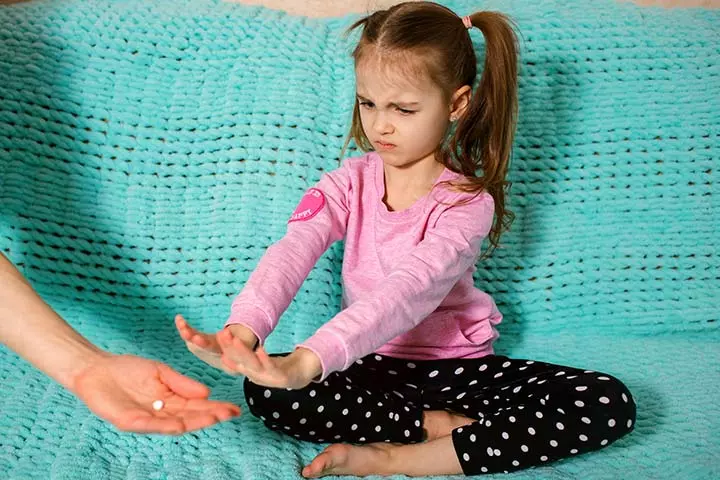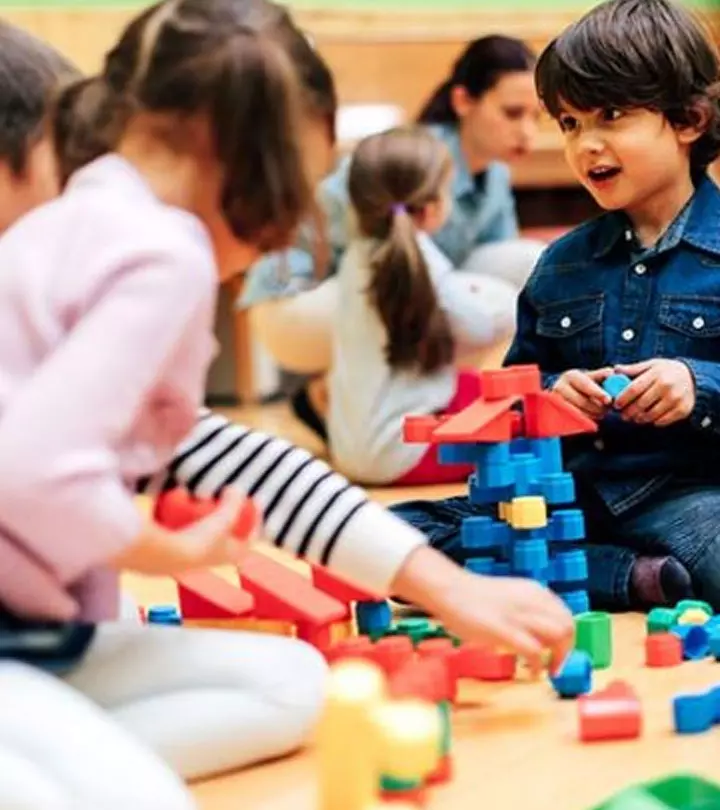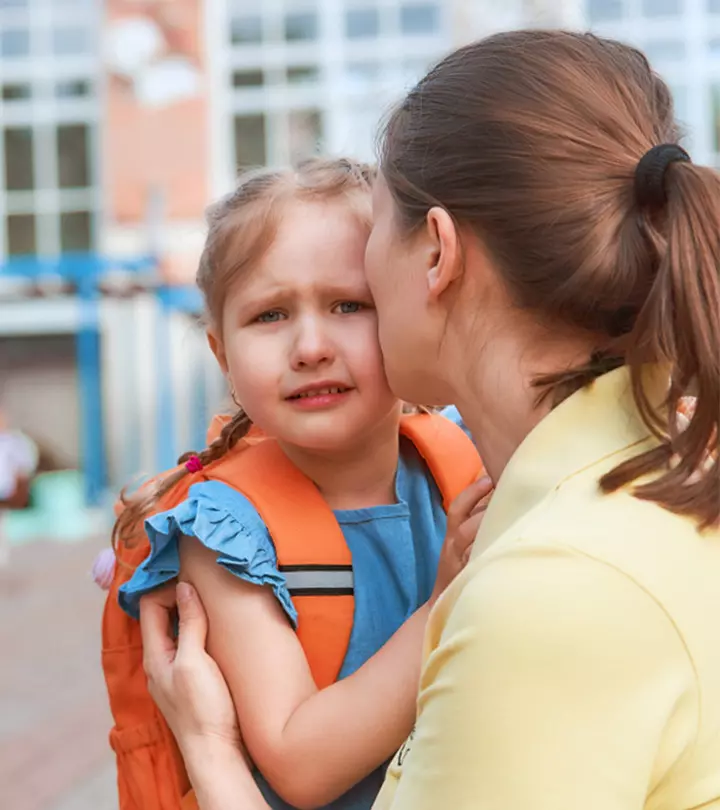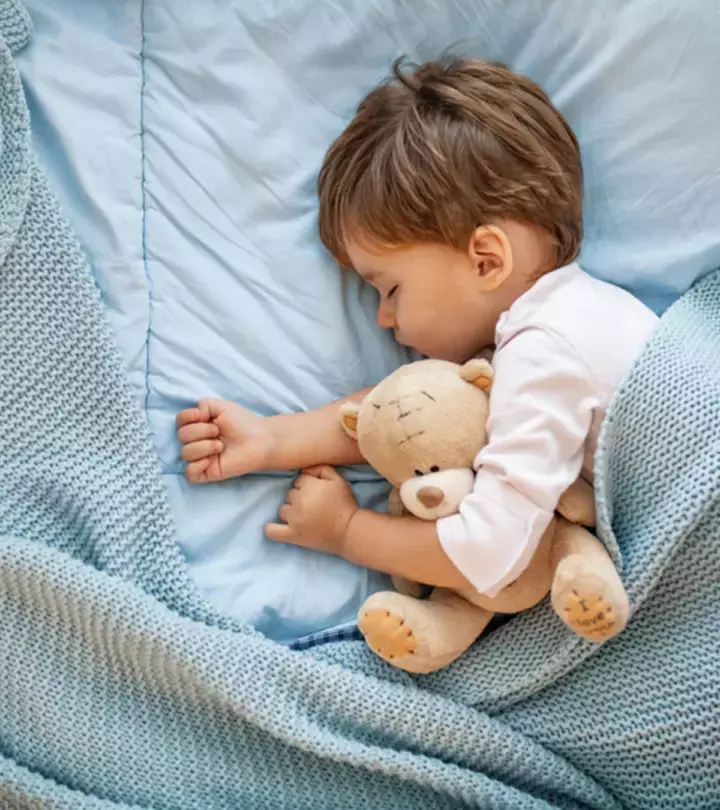
Image: Shutterstock
Managing children can be really challenging and easier said than done. Unruly children give their parents, teachers, and others quite a hard time. When the child is your own, at least you have the liberty to correct them. However, when you come across a situation where someone else’s child is misbehaving or creating trouble, you are often caught in a fix as to how to deal with it. After all, anything you say or do can offend the child, as well as the child’s parents. You’ll have to tread carefully when dealing with other people’s children as it can easily escalate and end up in bad feelings between the two parties.
There are better ways to handle such situations. In this article, we are going to discuss how you can handle and deal with the situation where someone else’s kid is creating trouble. So let’s dive in:
1. Involve Only When Necessary

Image: Shutterstock
It is natural for anyone to be protective of their child, but it is also essential to understand that conflict is a part of life. So, when your child is dealing with a conflict with another child, leave them be. You do not have to intervene unless absolutely necessary. When you get involved every time that your child is in a fight, they begin to think that you will be there to save the day in every situation. This prevents them from being assertive and making decisions for themselves. Without knowing it yourself, you will be doing more harm than good.
2. Don’t Be Rude

Image: Shutterstock
If you’re trying to deal with someone else’s child, do so in a friendly way. Do not try to be condescending and rude. Children, just like adults, are entitled to respect too. Also, if you weren’t aware, aggression towards a child is a particular form of violence. If you must tackle a child, do so in a respectful manner. Talk to them as you would another individual, and make them understand that they are behaving in an inappropriate manner.
3. Try To Understand The Parent’s Point Of View

Image: Shutterstock
We often get annoyed when children throw tantrums in public spaces. For example, it is not uncommon to encounter children misbehaving in the grocery store, supermarket, or at the movies. When this happens, we are quick to snap at the parent. But here’s the thing — they can’t do much, and they’re probably embarrassed and sorry already! It’s not easy to control children at a particular age when all they know is to scream and cry. Be understanding of this, and think twice before you scold the parents for something they can’t control.
4. Distract The Child

Image: Shutterstock
If a friend or colleague’s child is annoying you, instead of directly telling them to stop creating trouble or forcing them in any way, you could distract them. For example, let’s say the child is playing with fragile items in your house. Understandably, you want to stop them from breaking those items. It can get all the more annoying when their parents do nothing to stop them. However, instead of asking the child not to do something (which they’ll end up doing anyway), you could direct them to something else. Maybe suggest a board game or toys for them to play with. Or, you could ask them to play in the garden area for a change. Children are easy to distract so it can be a very effective strategy to make them calm down or get things done with ease.
5. Have A Conversation With The Parent

Image: Shutterstock
Honesty is the best policy, they say, and it is true. Sometimes, the best way to deal with other people’s children when they are troublesome is by bringing it to the notice of the concerned parent. Make them understand that there are a few things that are just not acceptable. If you have corrected the child, inform the parents that you had to do it and why you did so. This way, they too may make efforts to lead their child in the right direction. As long as you’re polite and state the problem in a nice and easy way, most parents would understand you and try to help you too.
6. Be Firm With Your Ground Rules

Image: Shutterstock
If your friend’s child is in your home and they begin to misbehave, make it clear that such an attitude won’t work under your roof. Tell them that your child, too, is required to follow certain norms, as does everyone else in the house. Tell them calmly but firmly that you love to have them at your place, and they can enjoy as much as they want, provided they stick to what’s acceptable and what’s not. Make sure you tell this to both your child as well as the other child. Often when one child notices the other following certain ground rules, they too start following it unknowingly (1)
7. Be Accepting When Other Parents Correct Your Child

Image: Shutterstock
It’s easy to believe that your child has no fault while the other child is the “bad influence” or in the wrong. However, as much as you want to deny it, there may be instances where your child takes a wrong turn too. When this happens, and another parent corrects your child, don’t get offended. Accept the truth, and make an attempt to teach your child a better way to go about things. Having said that, when another parent is being aggressive while correcting your child, know that it is well within your rights to tell the parent to communicate better. They can always adapt to better ways when tackling your child — and so should you.
Children learn from their parents and caregivers, so be careful in the way that you handle them. It is essential to know that children make mistakes, which is okay because that’s how they learn. Correct them the right way, and when you do, treat them well. And don’t forget to listen to them and be patient in all this. What are your thoughts in dealing with unruly children, be it your own or those of others. Share with us in the comments section.
References
- Peer Imitation by Toddlers in Laboratory Home and Day-Care Contexts: Implications for Social Learning and Memory
https://www.ncbi.nlm.nih.gov/pmc/articles/PMC4215951/
Community Experiences
Join the conversation and become a part of our nurturing community! Share your stories, experiences, and insights to connect with fellow parents.












